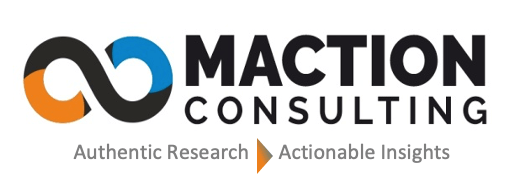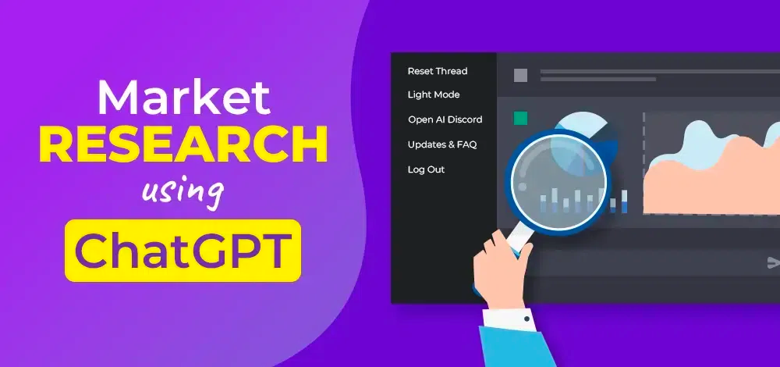Artificial intelligence (AI) has been advancing quickly over the past few decades, altering how we work, live, and interact with technology. AI has been essential in enabling discoveries and advancing science in the realm of study. Now that OpenAI has introduced ChatGPT, a sophisticated language model, we are seeing the rise of Research 3.0. This article will discuss what Research 3.0 comprises and how ChatGPT influences the research direction.
Understanding Research 3.0
Researchers have conducted their studies for many years using conventional techniques and equipment. Research 1.0 represented the early phases of scientific investigation when discoveries were mostly made by experimentation and observation. As a result of the advancement of computers and the Internet, Research 2.0 was developed, allowing researchers to employ digital tools and methodologies for data analysis to enhance their work.
On the other hand, Research 3.0 employs AI and natural language processing to advance this development to a completely new level. It represents a paradigm shift in research, allowing intelligent machines to support academics in various tasks, from data survey analysis and literature reviews to hypothesis development and experimental design. This new era of study is being ushered in by ChatGPT, which can recognize and produce text that sounds like human speech.
Why Research 3.0?
Because of the combination of AI and NLP technologies, research has advanced significantly with the advent of Research 3.0. Following are the key explanations for Research 3.0:
● Accelerated Research
Research 3.0 accelerates the research process by leveraging AI to eliminate time-consuming tasks and allow researchers to focus on more complex analysis and reasoning.
● Enhanced Insights
By utilizing AI tools like ChatGPT, researchers can access enormous amounts of information and data, enabling deeper insights, better judgment, and thorough literature studies.
● Intelligent Collaboration
By allowing multidisciplinary research, offering real-time support, and encouraging exchanging ideas and skills, Intelligent Collaboration: Research 3.0 encourages collaboration between marketing research agency and AI systems.
● Data-Driven Discoveries
Research 3.0 enables researchers to find hidden patterns, correlations, and insights that may have been difficult to find using conventional approaches. This is made possible by AI’s capacity to examine big datasets.
● Ethical considerations
Research 3.0 strongly emphasizes ethical research practices, including addressing potential biases, guaranteeing fairness, and addressing potential biases in AI.
● Innovation and Creativity
Research 3.0 supports inventive thinking, broadens the range of options, and enables researchers to investigate novel concepts and methodologies by enhancing human intelligence with AI technologies.
● Resource Allocation Optimization
Research 3.0 improves resource allocation by automating repetitive operations, minimizing errors, and improving efficiency, allowing researchers to do more with fewer resources and hours of work.
The Growing Popularity Of ChatGPT
ChatGPT’s rising popularity can be due to its capacity to deliver insightful support, streamline research workflows, and generate insightful data. Marketing research agency value it for its practicality, effectiveness, and ability to open up new frontiers in various fields, which is why the research community is adopting and recognizing it more frequently.
- OpenAI claims that ChatGPT amassed 1 million users five days after its November 2022 launch.
- A poll of American company leaders conducted in February 2023 revealed that about a quarter of the companies had used ChatGPT to make savings ranging from $50,000 to $75,000. Additionally, 11% claimed to have saved over $100,000 since integrating ChatGPT into their workflow.
- In April 2023, ChatGPT received 1.8 billion visitors, which represents a 7-fold increase over the 266 million visits it received in December 2022.
The Impact of ChatGPT on Research
ChatGPT has a significant impact on research because it revolutionizes several scientific processes. Let’s explore ChatGPT’s specific effects on research in more detail:
● Enhancing the Literature Review
The literature review is an important research phase that requires researchers to examine many prior studies and publications. ChatGPT can substantially speed up this process through effective resource searching and analysis. The number of visitors to ChatGPT’s website chat.openai.com increased by 576.6% between December 2022 and April 2023.
● Intelligent Hypothesis Generation
The foundation of scientific inquiry is the formulation of hypotheses. ChatGPT can be a clever partner who helps researchers develop and improve their hypotheses. By participating in interactive conversations, researchers can generate ideas, consider other viewpoints, and obtain recommendations via ChatGPT based on knowledge and data. This collaborative method encourages innovation and enables researchers to consider potential alternative possibilities.
● Data Analysis and Interpretation
Comprehending and analyzing massive datasets can be difficult and time-consuming. This is where ChatGPT can help academics by automating data analysis processes. It can glean insightful information, spot correlations and patterns, and understandably present the findings. Researchers may now make more informed judgments, obtain deeper insights from their data, and complete analysis faster thanks to these capabilities.
● Accelerating Experimentation
Although experimentation is a crucial part of scientific study, it occasionally necessitates significant time and cost investments. Researchers can forecast results and improve experimental designs by simulating experiments based on available data and knowledge. Researchers can carefully choose the variables, conditions, and parameters to test by utilizing the model’s huge knowledge base, ultimately avoiding the need for considerable trial and error. This quickens the experimenting process and makes the research process more effective.
● Sharing of knowledge and collaboration
ChatGPT acts as a virtual research assistant and promotes communication among researchers. It can engage in meaningful conversations, respond to queries, and offer immediate support. Researchers can communicate their concepts, theories, and discoveries through ChatGPT and receive insightful criticism and advice. Additionally, ChatGPT can eliminate barriers between academics from other fields, facilitating interdisciplinary collaboration and knowledge-sharing.
● Expertise Access and Guidance
ChatGPT gives scholars a sizable knowledge base across many fields and specialties. It can offer current details on cutting-edge research, techniques, and best practices. Researchers can turn to ChatGPT for advice on research methodologies, experimental designs, or data survey analysis strategies. This inventiveness broadens the capacities of researchers and gives them access to a wider spectrum of knowledge, ultimately improving the standard and depth of their research.
● Ethical Considerations and Bias Detection
Ethical considerations are more crucial than ever as AI is used more and more in research. Researchers can use ChatGPT to help them identify biases and potential ethical issues. Researchers can guarantee the objectivity and fairness of their work by analyzing language and spotting any biases. This feature encourages responsible and ethical research practices by adding a level of inspection and accountability to the study process.
Conclusion
Research 3.0, where AI-powered technologies like ChatGPT are altering how researchers approach their job, is a critical turning point in the development of scientific research. ChatGPT gives researchers new abilities by enabling them to explore larger bodies of information, produce intelligent hypotheses, evaluate complex data, quicken experimentation, and promote collaboration. ChatGPT can understand, generate, and analyze human-like text. As we embrace Research 3.0, we may look forward to a time when human and artificial intelligence will combine to open up new vistas for scientific creativity and discovery.
Maction is a leading market research agency that provides the best technology-driven survey platform available. With our considerable experience, we can help you gain the suitable consumer insights necessary for designing your creative strategy.
Contact the expert consultants at Maction Consulting today.




